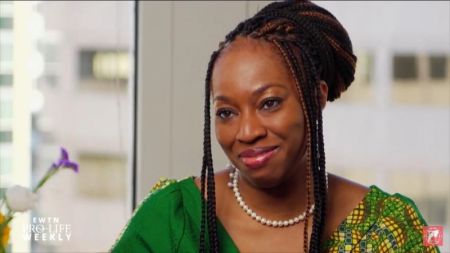COVID-19 relief is being weaponized to push abortion in Africa, documentary film claims

The coronavirus pandemic has been weaponized by wealthy Western countries to push abortion on struggling African nations, according to pro-life advocate and filmmaker, Obianuju Ekeocha.
As a result of the pandemic, "donor nations" from the West are tying COVID-19 relief packages to support for abortion and other kinds of sexual radicalism, the Nigerian-born U.K.-based author and activist says in the new short film, "Africa’s Pandemic: A Gateway To Neocolonialism," which was released Sunday.
“The effects of the pandemic have been devastating for Africans and on the economy of African nations, as well as on the already strained infrastructure throughout the continent, putting countries in a more dire situation,” Ekeocha, the founder and president of Culture of Life Africa, said in a statement to The Christian Post.
“Some Western donors, including government and international institutions, have used this as an opportunity to insert an ideological agenda focused on so-called ‘sexual and reproductive health and rights’ under the cover of COVID-19 humanitarian relief,” she added.
Malawi had its first confirmed case of COVID-19 in April. The country of over 18 million has since had 6,051 infections and 186 deaths.
“Strengthened by this new infusion of donor funds at a time when many communities are weakened and vulnerable under the burden of a global pandemic, abortion advocacy groups are pushing their ideology of legalized abortion, and yet, none of this makes it into the daily news cycle,” Ekeocha added.
In the short film, Ekeocha interviews Elyssa Koren, the director of U.N. advocacy for ADF International; Zacc Kawalala, a Malawian evangelical pastor who's the chairman of the Ethics, Peace and Justice Commission; and Joy B. Mdivo, the executive director for the East African Centre for Law and Justice in Kenya.
Through a variety of international government entities, humanitarian efforts, legal maneuvers, and strategic placement of media stories, abortion is being promoted in Malawi and Kenya despite massive opposition among the general public in those nations, Ekeocha says in the film.
Abortion is not something Africans want, Pastor Kawalala said. What they are asking for and need are improvements to their already strained and fragile medical systems and support for maternal health, he added.
When an abortion bill was recently introduced in Malawi, 125 out of the 188 members of Parliament opposed it, Kawalala says in the film. But abortion advocates were urging lawmakers to pass the legislation and took government leaders out to conferences and workshops, which he said was ill-considered given that the pandemic should have been the focus, not abortion.
"The Malawians, the people in this nation, are not for this bill," Kawalala said. "It's the West trying to impose itself on the laws of Malawi. We should be allowed to go through our own processes ... let the West stay put. Leave Malawians to decide for Malawians."
Much of the money for these concerted efforts is coming through Ipas, an international pro-abortion global health group, and the Guttmacher Institute, he said, and these groups fund a coalition of local organizations that do not represent the majority of its citizens.
The push to promote abortion throughout Africa also came through bodies like the World Health Organization and professional organizations like the American College of Obstetricians and Gynecologists.
"We all saw that with the start of the pandemic the healthcare system in a lot of places around the world was overloaded and there was the need to take certain services and to push them back and to delay things that were elective," Koren says in the film.
Yet abortion activists adamantly opposed abortion being classified as a "non-essential" service, that access to it not be delayed, she said. The end goal for these groups is an internationally recognized "right" to abortion, she added.
Soon after the pandemic escalated worldwide, both the American College of Obstetricians and Gynecologists (which advocates for abortion on demand and abortion for minors without parental consent) and WHO issued statements and policies affirming abortion as an essential service, urging governments and healthcare facilities to continue offering it.
A major donor nation pushing abortion worldwide as part of COVID-19 relief funds is Canada, the ADF lawyer added. The Globe and Mail reported in June that the Canadian government was committing approximately $9 million in international aid toward "sexual and reproductive health services."
"Which, we know, in U.N. parlance, that (reproductive health) means abortion," Koren said.
"This is money to promote abortion, to offer access to abortion in countries where abortion is usually illegal or highly restricted."
A kind of Catch-22 results in that these countries need the funds to combat the virus, but while having to disregard their laws and policies aimed at protecting the unborn, she added.
Ekeocha is the author of Target Africa: Ideological Neocolonialism in the 21st Century.





















